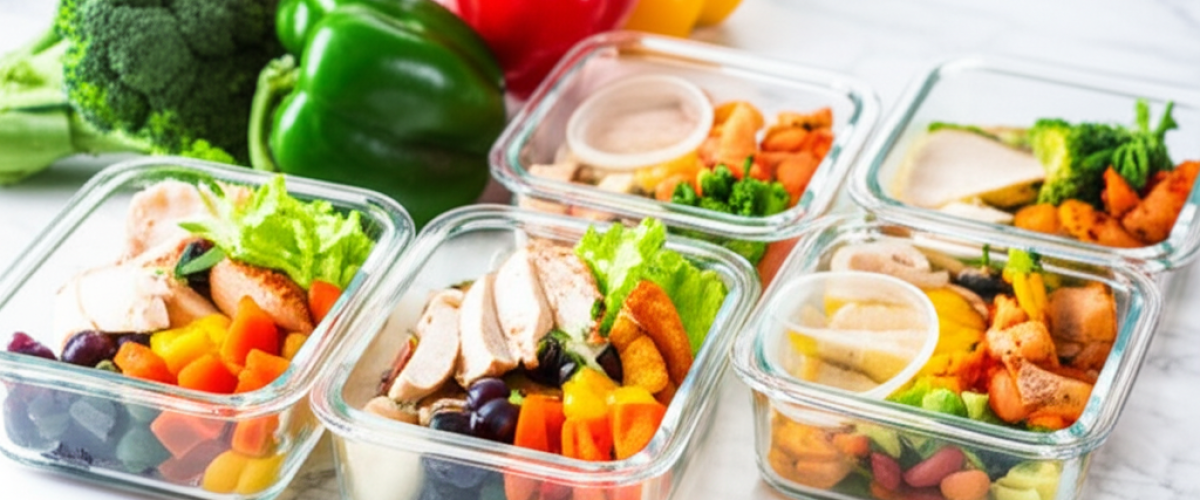Introduction
When it comes to achieving your weight loss goals, meal prepping is often touted as a game-changer. But what exactly is meal prepping, and how can it help you on your weight loss journey? In this post, we’ll explore the ins and outs of meal prepping, its benefits, and how to effectively integrate it into your lifestyle for sustainable weight loss.
Understanding Meal Prepping
Meal prepping involves preparing your meals in advance, typically for the week ahead. This practice not only saves you time during your busy weekdays but also assists in keeping your dietary goals in check. Think of it as having a roadmap, guiding you toward your weight loss destination without detours caused by last-minute decisions.
The Psychology Behind Meal Prepping
Consider this analogy: if you’re on a road trip without a map or GPS, you might end up lost or making unnecessary stops. Similarly, without meal prepping, your dietary choices can become random and unaligned with your goals. Meal prepping helps eliminate indecision and impulsive eating, which often lead to poor nutritional choices.
Benefits of Meal Prepping for Weight Loss
There are numerous advantages to embracing meal prepping on your weight loss journey:
- Portion Control: Pre-measuring your meals helps keep your portions in check, preventing overeating.
- Nutrition Awareness: Preparing meals allows you to select healthy ingredients, making it easier to stick to your nutrition plan.
- Time Efficiency: By dedicating a few hours at the start of your week, you save time daily, reducing the stress of “what to eat” decisions.
- Cost-Effectiveness: Buying ingredients in bulk and planning meals can save you money compared to spontaneous dining out or unhealthy snack purchases.
- Consistency: Meal prepping promotes adherence to your diet since your meals are readily available, reducing the temptation of unhealthy choices.
How to Get Started with Meal Prepping
Ready to jump on the meal prepping bandwagon? Here’s a step-by-step guide to make the process easy and efficient:
1. Set Clear Goals
Before you prepare your meals, establish your weight loss goals. Are you focusing on reducing calories, increasing protein intake, or incorporating more vegetables? Defining your nutrition objectives will guide your meal prep process.
2. Plan Your Meals
Choose recipes that align with your goals. Consider these tips when planning:
- Opt for recipes that are simple and quick to prepare.
- Incorporate a mix of proteins, whole grains, healthy fats, and plenty of fruits and vegetables.
- Plan for variety. Eating the same meals every day can lead to boredom.
3. Make a Shopping List
Once your meals are planned, create a shopping list. Stick to the list to avoid impulse purchases, which can derail your healthy eating habits.
4. Cook in Batches
Dedicate a day (like Sunday) for meal prepping. Cook large batches of grains, proteins, and vegetables. Use versatile ingredients that can be mixed and matched across different meals to keep things interesting.
5. Portion and Store
Divide your meals into individual containers for easy grab-and-go options. Use clear containers to easily see what you have. Consider labeling them with the meal name and date made to keep track of freshness.
6. Stay Flexible
Remember that flexibility is key! It’s okay to swap meals or modify your prep according to cravings or availability of ingredients.
Real-World Examples of Successful Meal Preppers
Many successful weight loss stories involve meal prepping. Take Sarah, for example:
After struggling with her weight for years, Sarah decided to give meal prepping a shot. She started planning her meals every Sunday, focusing on healthy, easy-to-make recipes. She pre-cooked chicken, quinoa, and roasted vegetables. Each morning, she grabbed a container on her way out, ensuring she always had a nutritious ready-to-eat meal at her disposal. Within a few months, Sarah not only shed pounds but also developed a healthy relationship with food.
Potential Pitfalls of Meal Prepping
While meal prepping can be highly beneficial, there are a few potential pitfalls to watch out for:
- Monotony: Eating the same meals every day can lead to boredom. Ensure you add variety each week.
- Overcomplication: Keep it simple. Trying to prepare intricate meals can lead to burnout quickly.
- Waste: If you overestimate the amount you’ll eat, you may end up tossing food. Start small and scale as needed.
Conclusion
Meal prepping is an effective strategy that can transform your weight loss journey. By planning your meals, you’re providing yourself with structure and control over your dietary choices. Not only does this lead to better portion control and nutrition, but it also simplifies the frequently hectic routine of daily life.
As we look forward, remember that meal prepping does not have to be a chore; rather, it’s an opportunity to empower yourself towards healthier habits. Whether you’re a busy professional, a parent, or someone simply looking to shed a few pounds, starting your meal prepping journey can put you on the path to success. So, roll up your sleeves, grab your containers, and get ready to enjoy the fruits of your labor — one delicious, nutritious meal at a time!
FAQ
What is meal prepping?
Meal prepping is the practice of preparing meals in advance for the upcoming week to save time and help stay on track with dietary goals.
Why is meal prepping important for weight loss?
Meal prepping can help you control portions, choose healthier ingredients, and stick to a planned nutrition strategy, preventing impulsive eating.
How can I avoid getting bored with my meals?
To keep meals interesting, try to plan a variety of recipes, mix different proteins and vegetables, and incorporate new ingredients each week.

